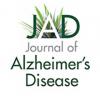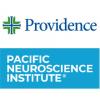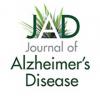20 February 2024
Double risk of dementia after mouth ulcer virus
People who have had the herpes virus at some point in their lives are twice as likely to develop dementia compared to those who have never been infected. A new study from Uppsala University confirms previous research on whether herpes can be a possible risk factor for dementia.
14 February 2024
Exposure to Agent Orange damages brain tissue in ways similar to Alzheimer’s disease
Agent Orange, an herbicide used during the Vietnam War, is a known toxin with wide-ranging health effects. Even though Agent Orange has not been used for decades, there is increasing interest in its effects on the brain health of aging veterans. A new study by scientists at Brown University reveals the mechanisms by which Agent Orange affects the brain and how those processes can lead to neurodegenerative diseases.
6 February 2024
Unhealthy eating habits tied to Alzheimer's
A study has found a strong link between Alzheimer's disease and the daily consumption of meat-based and processed foods. Researchers at Bond University came to the conclusion after examining the diets of 438 Australians - 108 with Alzheimer's and 330 in a healthy control group. Those diagnosed with Alzheimer’s tended to regularly eat foods such as meat pies, sausages, ham, pizza and hamburgers. They also consumed fewer fruit and vegetables such as oranges, strawberries, avocado, capsicum, cucumber, carrots, cabbage and spinach.
6 February 2024
Did the ancient Greeks and Romans experience Alzheimer’s?
You might think age-related dementia has been with us all along, stretching back to the ancient world. But a new analysis of classical Greek and Roman medical texts suggests that severe memory loss — occurring at epidemic levels today — was extremely rare 2,000 to 2,500 years ago, in the time of Aristotle, Galen and Pliny the Elder. The USC-led research, published in the Journal of Alzheimer’s Disease, bolsters the idea that Alzheimer’s disease and related dementias are diseases of modern environments and lifestyles, with sedentary behavior and exposure to air pollution largely to blame.
8 January 2024
Journal of Alzheimer’s Disease Welcomes New Co-Editor-in-Chief Paula I. Moreira, PhD
The Journal of Alzheimer’s Disease (JAD), published by IOS Press, is pleased to announce the appointment of new co-Editor-in-Chief, Paula I. Moreira, PhD. Dr. Moreira joins Editor-in-Chief George Perry, PhD, and an eminent international editorial board who are dedicated to the continuing success of the world’s leading journal in Alzheimer’s research and treatment.
15 December 2023
New Study Shows Exercise Can Boost Brain Health
A fascinating link between regular exercise and better brain health has been revealed, according to an international study that included a team of clinical researchers from Pacific Neuroscience Institute’s Brain Health Center, located at Providence Saint John’s Health Center. The research, detailed in the paper "Exercise-Related Physical Activity Relates to Brain Volumes in 10,125 Individuals," was published this week in the Journal of Alzheimer’s Disease and shows being physically active is related to increased size of brain areas important for memory and learning.
4 December 2023
Diet has a major impact on risk of Alzheimer’s disease
In a detailed study, Diet’s Role in Modifying Risk of Alzheimer’s Disease: History and Present Understanding published in the Journal of Alzheimer’s Disease, we can finally see which diets are helpful in reducing the risk of developing Alzheimer’s disease. The role of diet in modifying the risk of Alzheimer’s disease is discussed in detail. Diets that are more plant based, like the Mediterranean diet and traditional diets in China, Japan, and India, are shown to reduce risk, especially when compared to the Western diet.
27 November 2023
Hearing Loss is Associated with Subtle Changes in the Brain
Hearing loss affects more than 60 percent of adults aged 70 and older in the United States and is known to be related to an increased risk of dementia. The reason for this association is not fully understood. To better understand the connection, a team of University of California San Diego and Kaiser Permanente Washington Health Research Institute researchers employed hearing tests and magnetic resonance imaging (MRI) to determine whether hearing impairment is associated with differences in specific brain regions.
9 November 2023
Sage Grows Research Portfolio by Acquiring IOS Press
Global independent academic publisher Sage has acquired IOS Press, an independent publisher founded in Amsterdam in 1987 that specializes in health, life, and computer sciences. With this move, Sage acquires nearly 100 journals and a frontlist of 70 plus books each year covering subjects such as neuroscience, medical informatics, cancer research, artificial intelligence (AI), data science, and the semantic web.
16 October 2023
Personalized Coaching Decreases Cognitive Decline in Early-Stage Alzheimer’s Disease Patients
Supplementing the standard of treatment for Alzheimer’s disease patients with personalized lifestyle coaching leads to less cognitive decline compared to standard of treatment alone, according to an ISB-led two-year study. The results were published in the Journal of Alzheimer’s Disease.















